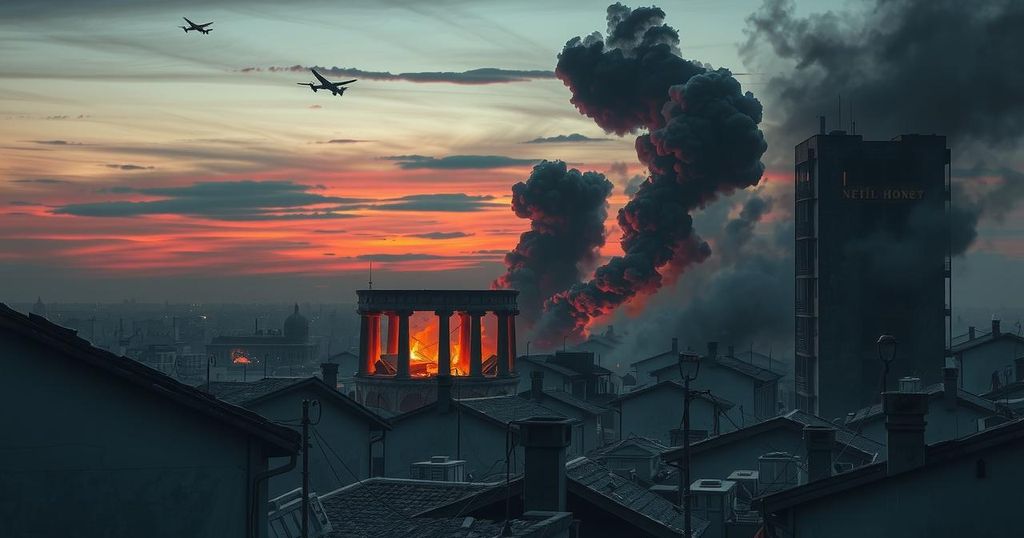Global news
AHMED AL - SHARAA, ASIA, CONFLICT, DAMASCUS, DEFENCE MINISTRY, DISPATCH, EAST EYE, EUROPE/ASIA, HAMAS, HIKMAT SALAMAN AL - HAJRI, INTERNATIONAL CRISIS GROUP, ISRAEL, ISRAEL-PALESTINE CONFLICT, JERUSALEM, MARCO RUBIO, MIDDLE EAST, MIDDLE EAST CONFLICT, MILITARY OPERATIONS, NORTH AMERICA, PALESTINE, RUBIO, SYRIA, TRUMP, TURKEY, UNITED STATES, US
Fatima Khan
0 Comments
Israel’s Strikes in Damascus Challenge Trump’s Vision for Syria
- Israel’s air strikes on Damascus mark a significant escalation against the Syrian government.
- The strikes were framed as protection for the Druze minority community within Syria.
- Druze leaders in Israel have called for intervention, complicating responses to Israeli actions.
- The US administration is pursuing a unified Syria, diverging from Israel’s protective stance.
- Netanyahu’s focus on undermining Syrian stability conflicts with Trump’s normalization efforts.
Israel’s Strikes Challenge Trump’s Vision for Syria
In the latest move that signifies an increasing rift in Middle Eastern affairs, Israel’s air strikes on Damascus have raised eyebrows and questions regarding the intentions behind such aggression. These strikes, which targeted key government buildings including parts of the defense ministry and locations near the presidential palace, were framed by Israeli officials as humanitarian interventions aimed at protecting Syria’s Druze minority. The situation becomes even more complicated considering the recent warming of ties between Israel and President Ahmed al-Sharaa’s administration, a relationship that some observers thought would foster cooperation rather than conflict. “Israel and the US are definitely not on the same page,” noted Dareen Khalifa, a senior advisor at the International Crisis Group.
Druze Pressure and Military Influence
Israel defended its strikes, claiming it was acting at the behest of Druze leaders within Israel. Sheikh Hikmat Salaman al-Hajri, a prominent figure among the Druze, expressed that their community is under siege and called for international assistance. However, this call for intervention faces dissent from other Druze leaders who are rejecting Israeli help, complicating the narrative surrounding this operation. A US diplomat familiar with the region commented on the pressure for Israel to act, saying, “There is definitely genuine Druze pressure inside Israel to intervene,” indicating a real complexity to the moral justification behind Israel’s military action in Syria. The broader implications of such actions raise concerns over Israel establishing a zone of influence within Syria that may further entrench sectarian divisions.
A Divergence in Syrian Strategy
The Israeli strikes highlight a fundamental divergence in strategy between Israel and the Trump administration regarding Syria’s future. While Israel seeks to establish itself as the protector of the Druze community, the Trump administration is pushing for a unified Syria under a single power that excludes any additional divisions among sectarian lines. US Secretary of State Marco Rubio characterized the situation as a misunderstanding rather than a rift, yet many analysts remain skeptical. They suggest that Israeli Prime Minister Netanyahu is more focused on destabilizing the Syrian state than achieving any semblance of normalization of relations with Damascus, further complicating future diplomatic efforts. Over the past several months, there seems to be a noticeable absence of unity in purpose between the two allies, which could have significant impacts on diplomatic relations in the region.
The recent Israeli strikes in Damascus reflect a clear tension in the approach towards Syria between Israel and the Trump administration. While Israel takes actions it views as protective of the Druze minority, the US appears focused on achieving a unified Syrian state under a singular governance structure. This fundamental difference in strategy could further complicate any potential for normalization between Israel and Syria, even as diplomatic hopes rise amidst ongoing conflicts in the region.




Post Comment